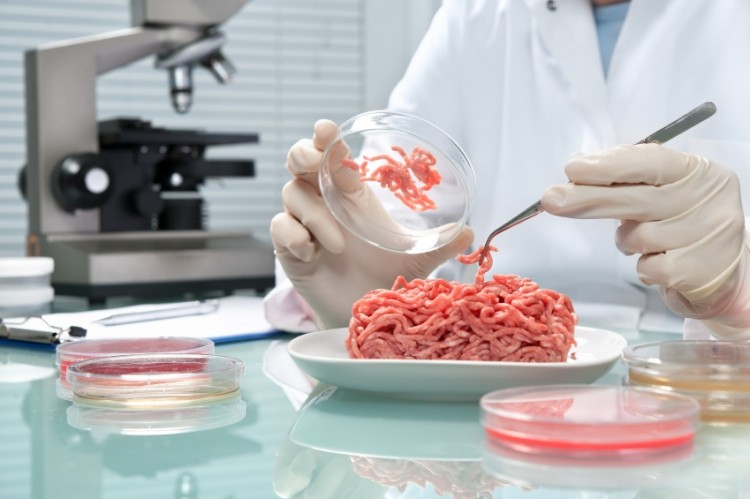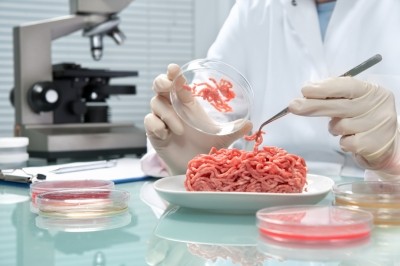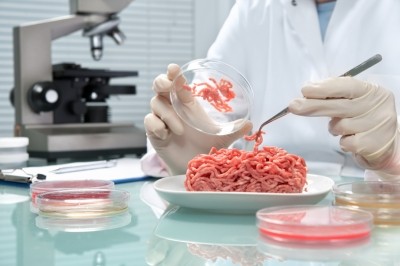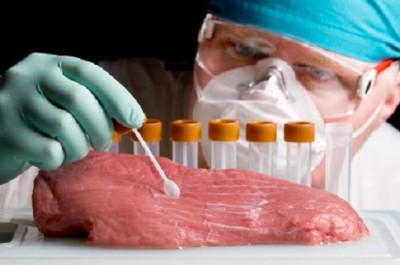Consumers aren’t prepared to join the lab-meat love-in

Will consumers eat foods that are generated in a laboratory rather than grown in a field? For the past decade it’s been a popular polling question. In 2005, for example, the European Commission asked citizens whether growing meat from cell cultures to avoid slaughtering animals was a concept they’d approve of: 54% said never, making it the second least favourable technology from a list of 22; and only just behind cloning of human beings so that couples with a genetic disease could become parents.
Fast-forward almost 10 years and the idea remained equally off-putting, it seems. Some 78% of US consumers quizzed by Pew Research in February 2014 said they wouldn’t eat lab-grown meat. One in five (20%) said they would, which at that time made the ‘invention’ less attractive than a brain implant to improve memory or mental capacity (26% said they’d have one).
It’s a dead duck then? That’s what critics, including the livestock industry, would say. However, the widely cited polls, need to be taken with a pinch of salt. “They ask the question without any context,” noted Bruce Friedrich at October’s conference on cultured meat in Maastricht, the Netherlands.
“Once consumers understood that clean meat was the same as conventional, seventy one percent wanted to buy it, twenty five percent said maybe, and only four percent said ‘probably not,’ with zero percent in the ‘definitely not’ category.”
Friedrich is adamant that once “clean meat” (real meat grown without animal slaughter) is available, consumers will gobble it up. I am not so sure. Here’s why.
Hard sell
Awareness of the environmental issues relating to meat consumption is much greater than it was even a year ago, which is good news for alternative meats. However, that’s not fuelling the move to flexitarianism: health is the reason that (by-and-large) more consumers are eating less meat these days. And with increasingly meat-like plant-based foods available, lab-grown meat might be a hard sell.
What should concern those spending millions to develop these products is the link between their concept and genetically modified foods that it’s all too easy for consumers, critics and naysayers in the media to make. That might not be a fair leap to make, but it’s an easy one and the simplified polling to date won’t have helped matters.
The hours debating the terminology to use – ‘clean meat’ rather than ‘cultured meat’ – is undoubtedly well spent. The fact that cool start-ups rather than corporate behemoths are behind some of the best tech so far is another plus. The likes of Monsanto arguably attempted to sneak genetic modification into the food chain and then promote the case for supporting it.
The clean meat sector isn’t making that mistake, with many keen to talk up the science behind some of the products being developed. However, I get the sense that it is falling into other similar traps.
GM can help us feed the world in an environmentally sustainable way, so the argument went for that technology. Producing clean meat could be as easy as producing beer, I read recently, with tanks in pubs cultivating meat ready to serve up in the evening’s steak-frites. And it could all be washed down with a synthetic wine, which has already hit the market, of course.
The man who helped make it possible, Alec Lee from the Ava Winery in San Fransisco, said that making the ‘wine’ was pretty straightforward in the scheme of things. “Wine is technologically a low-hanging fruit,” he said. “We’ll be able to rapidly bring products to market that not only match but surpass the quality of their natural counterparts.”
Food tech tap
He also sees a future where “any food we want is available at a moment’s notice at the touch of a button”. Food would be cheap, plentiful and sustainable. It’s a nice thought and increasingly feasible, but that doesn’t mean it is an easy sell.
An extensive study published in March by the UK Food Standards Agency showed the paradox that the food industry is dealing with: consumers love convenience but they feel it’s only accelerating the speed with which they lose touch with their food. This brings to mind some thoughts sent to me during research for an article on the plausibility of making synthetic coffee – a commodity that is also under pressure environmentally.
The experience created for coffee lovers by everyone from the farmer to the barista is something that synthetic coffee can never match, Thomas Haigh, head of Coffee by Tate told me. For this reason alone, he wonders why would we even want to consider a laboratory shortcut?
“The whole delight in experiencing coffee is knowing that many people, from many cultures have come together over many processes to produce a cup of coffee,” explained Haigh. “Why should we want to bypass all of that?” The same could be said for a fine piece of aged beef.
There is – or indeed must be – a place for ‘new’ food and drink that reduces the environmental footprint on the planet and ideally improves diets. But I wonder if its availability will also help people reconnect with ‘real’ food?

























